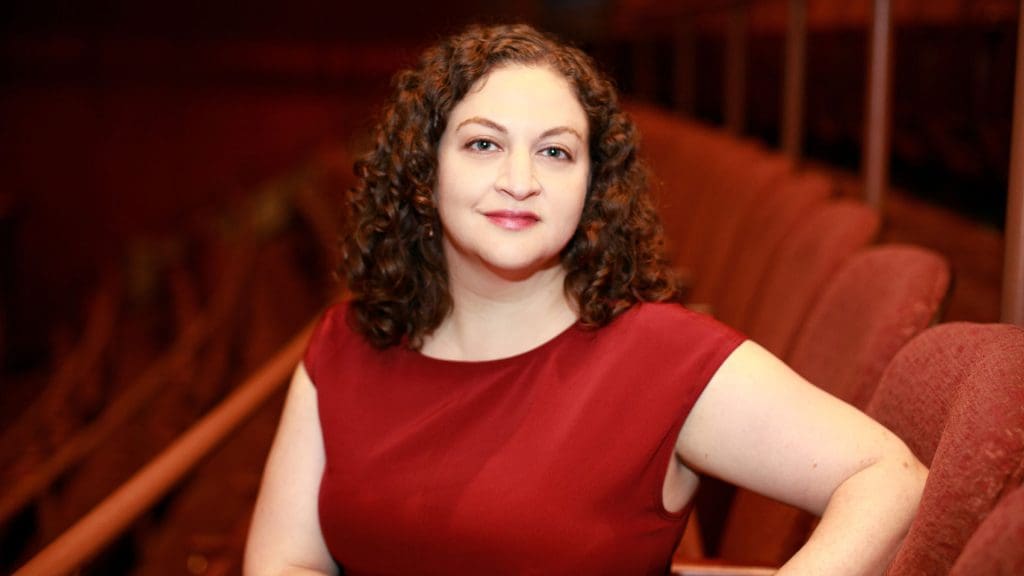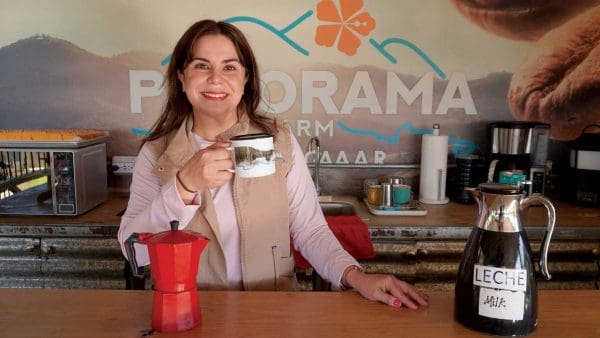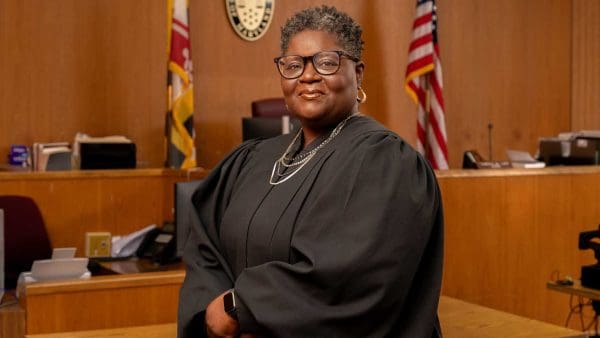
Jill Rafson ’03, who double majored in The Writing Seminars and film and media studies, is the producing artistic director of Classic Stage Company (CSC), one of Off-Broadway’s oldest theater companies. Before assuming this role in 2022, Rafson spent 17 years at Roundabout Theatre Company in Manhattan, where she developed such acclaimed works as the Pulitzer Prize-winning plays “English” and “Primary Trust.”
What’s most rewarding about your work?
The whole culture of development. It’s not just doing shows, it’s doing readings, commissioning writers to do new adaptations of classics, re-investigating the canon and asking, “What is the meaning of a classic?” and “How do we give new life to shows that might otherwise be lost?”
This season, two of our shows are about lost stories. “Marcel on the Train” is about a classic figure, mime Marcel Marceau. Few people realize that he was part of the French Resistance in World War II, rescued Jewish children from the Nazis, and got them into neutral territory.
We’re also doing “The Emporium,” a lost Thornton Wilder play, a script he was never satisfied with. His estate gave permission to a writer to take his drafts, make a version that worked, and put it on stage while also incorporating the story of its discovery.
How did Hopkins influence your career?
When I was at Hopkins, there was no theater department, no specific theater classes until John Astin arrived to teach acting/directing workshops in my sophomore year, and no rules about what you could or couldn’t do.
Because theater had always been my hobby, I was able to take on leadership roles in the Barnstormers and Witness Theater. I produced, marketed, stage managed, directed, and wrote. Understanding how the full process worked made me ready to be a producer.
Also, the workshop style of The Writing Seminars set me up to be someone able to have creative conversations in a constructive and thoughtful way.
You’ve been quoted as saying, “It’s our job to both produce great work and help teach our audience how to watch it.” How do you do that?
I have a dramaturgical mind, which means I love to give context to things. Filling in the history and “why” of a piece really enhances the audience’s experience and gives them a longer-lasting memory of it.
What’s a theater moment you cherish?
At the first rehearsal of every project, I think of Lonny Price, one of my favorite directors, telling everyone, “I want you all to look around and think about how lucky we are to be in this room to make art together.” I feel part of the continuum of theater history and love the privilege of having that impact.




